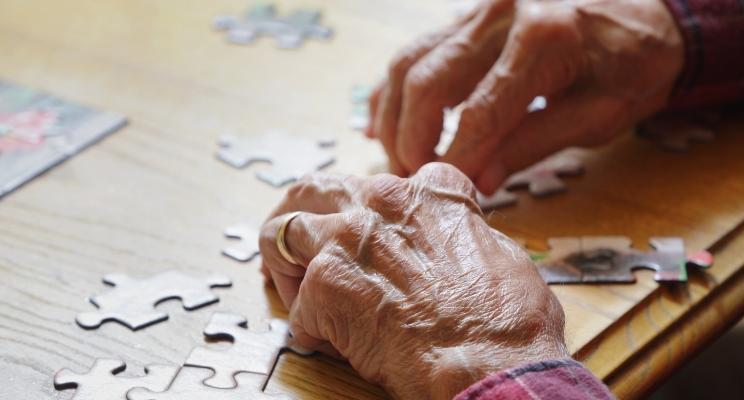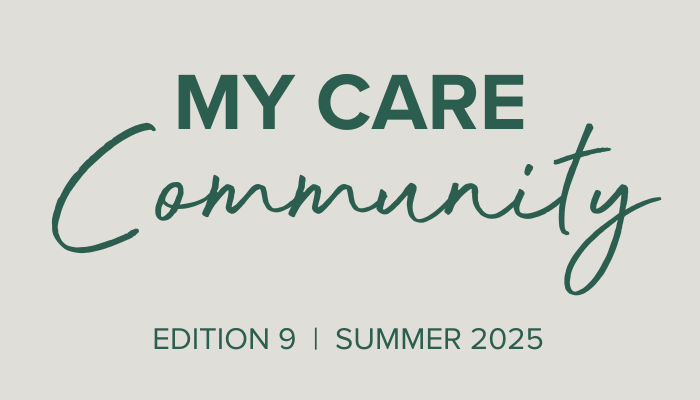Did you know that the volume of your brain shrinks as you get older? When this happens, your brain’s nerve cells shrink or lose their connections with other nerve cells. This can negatively affect your cognitive skills such as your ability to think, read, write, learn, remember, and speak.
As we get older, it’s even more important to keep our brains healthy and stimulated. ‘Use it or lose it’ is a popular adage that is backed up by research, which shows that older people who regularly exercise their brain cells are less likely to lose cognitive function than those who do not.
Cognitive training stimulates the brain in the same way that physical exercise strengthens the body. There are many activities that can help the mind exercise and improve memory and thinking skills. Here are our top 7 suggestions that will stimulate your brain, offer a renewed sense of purpose, and the opportunity to laugh with family and friends.
1. Dust off a puzzle box
Putting together a jigsaw puzzle has numerous health benefits, including stress reduction and improved memory. This activity requires concentration and improves short-term memory and problem-solving abilities. Using the puzzle as a mental exercise can help you to expand your imagination and boost your creativity and productivity. Better yet, you can put together a puzzle on your own or in the company of a loved one.
2. Bake a new dish
Baking allows you to stimulate your brain in a fun, light-hearted setting. Baking requires clear thinking and following a recipe’s instructions, which can range from relatively simple steps to creating more difficult, complex dishes. Not only does the activity lead to a delicious finished product, it also acts as a confidence booster as it involves learning new skills. Our favourite retro recipes include vanilla slice and citrus buttercake.
3. Have a meaningful conversation
A recent study found that when older adults reported more frequent and pleasant social interactions, they also had better cognitive performance on that day and the following two. Reach out to your family, friends, or caregivers regularly to discuss your life experiences. Meaningful conversation is good for your brain, and it could be the words of wisdom that your loved one remembers forever.
4. Listen to your favourite album
Music has been shown to activate some of the brain’s most extensive and diverse networks. Therefore, music can aid in the maintenance of a wide range of brain pathways and networks, including those involved in wellbeing, learning, cognitive function, quality of life, and happiness. How do you incorporate music into your life? It’s easy to do. You can actively listen to music right now, or pop on some background music to lift your mood. Alternatively, you can combine music with an aerobic or social activity.
5. Put your creative energy to good use
The release of dopamine that occurs as a result of creating art and craft stimulates the growth of new neurones in the brain, which improves focus and concentration while also preparing the brain for learning. You can improve psychological resilience and productivity by strengthening the connection between the left and right hemispheres of the brain by creating art. Partake in some art and craft activities such as painting, colouring, sewing, knitting, or crocheting.
6. Calm the mind through meditation
In mindfulness meditation, we learn how to pay attention to our breath as it goes in and out, and notice when the mind wanders from this task. Meditation helps us learn how to return to, and remain in, the present moment. This has been shown to increase the thickness of the prefrontal cortex. Higher-order brain functions, such as increased awareness, concentration, and decision-making, are managed by this brain centre. Meditation has also been shown to contribute to a greater sense of wellbeing, alleviate mental stress, and promote sustained focus.
7. Continue learning
Have you ever wanted to learn to play the piano or learn a new language? Perhaps you’ve always wanted to try gardening or learning how to cook French cuisine? When you learn something new, you’re exercising your brain, which can help you improve cognitive functions like concentration, attention to detail, memory recall, and problem solving, as well as lower your risk of dementia. New hobbies can also help you meet new people, becoming involved in your community, and have fun!
Understanding how to keep our minds stimulated is crucial, especially as we get older and prefer to stay in our homes for as long as possible. If you feel you need more support at home, My Care Solution is available and ready to provide premium home care services. Contact your local My Care Solution office and book your free care consultation today.



